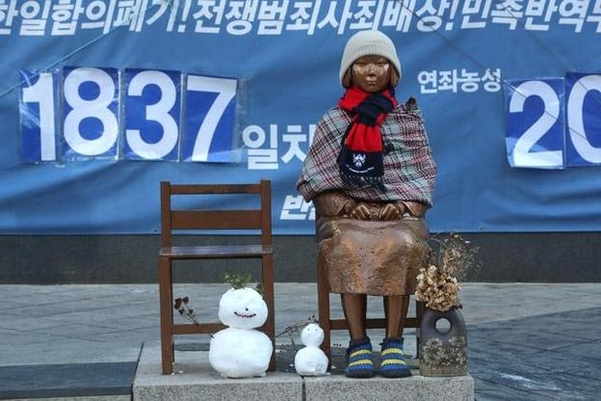Input 2021.01.10 11:54
Section 34 of the Civil Agreement of the Seoul Central District Court (President Judge Kim Jeong-gon) said in a lawsuit filed against the Japanese government by 12 victims of comfort women, including the late grandmother Bae Chun-hee, “Pay 100 million won per person to the plaintiffs.” The high plaintiff was ruled in favor.

According to the Asahi Shimbun, a high-ranking Japanese government official said, “(ICJ) filing is a strong option,” and said, “If the Korean side does not respond, the position will be difficult.”
In this lawsuit, which has been held since 2016, the Japanese government insisted that the lawsuit itself does not constitute the principle of “Sovereignty Exemption (State Exemption)” under customary international law that “a court of one country cannot judge another country as a party to the lawsuit”. And asked for your sir.
However, the judge ruled without applying the sovereign immunity, saying, “This case is a crime against humanity that has been widely committed intentionally and systematically by the Japanese Empire and violates international enforcement norms.”
Japanese Foreign Minister Moteki Toshimitsu, who is visiting Brazil, said in an online interview with Japanese reporters after having a telephone talk with Foreign Minister Kang Kyung-wha the previous day (9th), “I will respond desperately with all options in mind.” He did not mention the policy of the complaint.
However, he argued, “There was an’abnormal’ situation that could not be thought of even under international law or due to bilateral relations. In the meantime, an unthinkable ruling came out.” Said the meaning.
The Asahi Shimbun predicted that the Japanese government would make a final decision on whether to file an ICJ lawsuit by looking at the proceedings of the lawsuit and the response of the Korean government, including the progress of the plaintiff’s seizure of Japanese government assets in Korea.
However, it is known that there is also a negative trend within the Japanese government regarding the ICJ complaint plan.
The Yomiuri Shimbun said that even if the ICJ quarrels, even if the sovereignty waiver is granted, the comfort women issue may rise as an issue again.
Even if the Japanese government decides on the ICJ complaint policy, there is no possibility that it will lead to an actual trial.
This is because the Korean government does not accept the ICJ’s’mandatory (mandatory)’ jurisdiction to settle disputes between countries according to international law, so even if the Japanese government pushes for a complaint, if Korea does not respond, the lawsuit itself will not be established.
Compulsory jurisdiction is the power of compulsory jurisdiction from one state to the other, and Japan accepted it in 1958.
However, the Korean government did not accept compulsory jurisdiction at the time of joining the ICJ in 1991, wary of the possibility that Japan, which claims to have sovereignty over Dokdo, will attempt to settle disputes using international courts.
The Yomiuri Shimbun also predicted that the Korean government, which did not accept the compulsory ICJ jurisdiction, could not respond even if the Japanese side filed a complaint.
